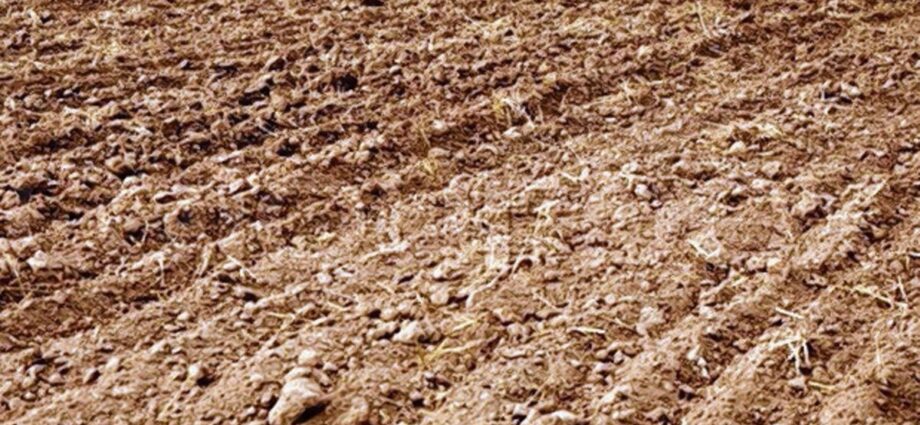Healthy soils are a precondition for good agricultural productivity. They provide various environmental services – such as purifying water, regulating nutrient flow, housing beneficial organisms, and supporting food production. As weather conditions become increasingly variable, farmers need healthy soils that can withstand heavier rains and store more water during drier periods. This makes improving soil health important to increase smallholder resilience to climate change.
It is a simple equation: soil is essential for life, so investing in it means caring about life for present and future generations. In most smallholder contexts, land size per household has shrunk after years of subdivision. Similarly, farming intensity has increased in recent years, raising concerns about the capacity of soils to keep pace with increased crop production trends.
In other words, while soils are at the core of farmers’ livelihoods, farmers have – through no fault of their own – contributed to its degradation; and they are also the most affected by it. Practices like soil testing can increase farmers’ understanding of their soils’ needs and motivate better farming approaches, like agroforestry and organic inputs, that can improve and maintain soil health.
Soil health and its role in sustainability
Maintaining healthy soils is crucial to agricultural and environmental sustainability. Current land and crop management practices have resulted in poor soil quality, impacting its health and the environment. Excessive use of fertilizers can result in nutrient surpluses and water and air pollution. On the other hand, we still need fertilizers for increased crop yields, which makes finding sustainable nutrient management practices crucial.
Farmers are crucial to maintaining a healthy ecosystem, but they often lack the appropriate knowledge and tools to assist them when making farming decisions to improve their soils and reduce negative environmental impact. This is because they lack access to diagnostic tools, such as soil testing facilities. To move farmers towards better soil health and sustainable production, they need to understand their soil health status and what issues to address to improve the quality. This is where soil testing comes in.
Soil testing as a solution
Different crops are usually grown on different soil types and require custom fertilizer requirements and specific soil management practices. Knowing your soil’s physical and chemical characteristics and the exact nutrient composition is critical to a healthy crop production system.
This year, One Acre Fund-Tanzania is collaborating with the government to conduct soil testing for farmers to empower them with the right information regarding their soils to enable sustainable production.
Part of these efforts is increasing accessibility to soil testing facilities for smallholders. Under this project, the government and One Acre Fund are ensuring farmers can make informed fertilizer/nutrient management decisions, reducing risks to the soil such as erosion, low fertility, acidity, and moisture retention, increasing farming profitability in the long run.
Besides determining soil nutrient requirements, soil testing has several additional benefits to a farmer. To start with, understanding a soil’s status minimizes fertilizer expenditure and maximizes profitability. Knowing the quantity and type of fertilizer a crop and soil needs ensures farmers don’t waste money on unnecessary extra fertilizer. Moreover, sources of critical nutrients such as phosphorus and potassium are finite, meaning we must ensure their optimal usage for sustainability.
Additionally, investing in healthy soils combats soil degradation. Each year, billions of tons of top fertile soils are lost due to erosion caused by poor soil management practices leading to soil degradation.
This, in turn, directly affects the livelihoods and health of entire communities through harvest losses. Moreover, soil restoration is costly, complex, and time-consuming; soil management through soil testing for sustainable and farm-specific recommendations is an easier route.
Moreover, understanding soil status promotes best management practices for sustainable soil management, such as adding organic inputs like compost, manure, and crop residues; intercropping, and applying soil conditioners like lime. These practices lead to increased yields, superior environmental risk management, accelerated crop maturity and quality, and higher tolerance to disease and pest damage.
Create practical outcomes
Smallholder farms are places where soil health is intimately linked to livelihoods and the environment – often providing important insights into soil health management. By getting pertinent information into the hands of smallholder farmers, we can adapt these insights to different farmer contexts to create practical outcomes.
By sensitizing farmers on the importance of soil testing, we empower them to care for their land. When farmers test and tend to their soil, they usher in a healthy ecosystem where they can thrive and gain control of their livelihoods.
Through public-private initiatives, such as that between One Acre Fund and the Government of Tanzania, we can provide regular opportunities for smallholders to access soil testing to help improve the health status of their soils.
The soil tests are fast and inexpensive; when done regularly, we can ensure that farmers are armed with the knowledge they need to expeditiously mitigate common soil health problems.
Ms. Musetti is the External Relations Manager at One Acre Fund – Tanzania.
Share this news
This Year’s Most Read News Stories

Zanzibar tourism investors alarmed by new mandatory insurance fee
Tourism investors in Zanzibar have voiced their concerns over the introduction of mandatory travel insurance, cautioning about its potential negative impact on the industry.Continue Reading

ACT-Wazalendo calls for withdrawal of mandatory travel insurance in Zanzibar
Starting October 1, all visitors to Zanzibar will be required to purchase a mandatory travel insurance policy costing $44 at the point of entryContinue Reading

Zanzibar Airport Authority to audit ground handlers
Unguja. The Zanzibar Airports Authority (ZAA) is set to conduct an audit on ground handling companies that currently operate at the Abeid Amani Karume Airport with effect from Monday. The week-long audit is set to include Transworld, ZAT and the newcomer Dnata Zanzibar who were licensed in June plus exclusive rights to manage Terminal 3 building by ZAA.Continue Reading











